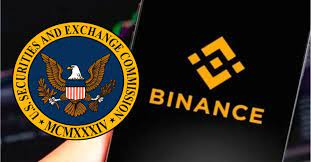Too burning, the total transaction cost of Ethereum exceeded the first bitcoin for the first time.
According to a report by Trustnodes on September 19, the total amount of Ethereum network daily transaction fees has surpassed Bitcoin for the first time.

(Source: pixabay )
According to data from Massari, in a 24-hour period in the past day, users paid a total of $207,000 for the Ethereum network, while Bitcoin was $180,000.
- Coinbase opens "crazy coin mode", 17 new coins such as polkadot and filecoin are included in the list
- I interviewed 50 projects in 2 days and I found these secrets | Ant Financial Block Chain Competition
- SEC Chairman: Bitcoin will not board the traditional mainstream exchanges before strengthening supervision
At present, the transaction cost of Ethereum is US$0.16 per bit and Bitcoin is US$0.20.

Ethereum total transaction costs surpass Bitcoin, September 2019
As shown in the above figure, the transaction fees of other cryptocurrencies in the past 24 hours are much different from Ethereum and Bitcoin. The trading fee for Litecoin ranks third, at around $1,000, while the total transaction cost for Bitcoin Cash is only $150.
Users who use Litecoin and Bitcoin Cash are still a minority, while Ethereum and Bitcoin are running at full capacity, with block data of about 1MB every 10 minutes.
At present, Ethereum is trying to increase its block space by 25% through a simple and feasible miner vote.
Ethermine, one of the world's largest mines, said their goal is to control the amount of gas in Ethereum to less than 10 million, but as the picture above shows, the company's current gas usage is 8.7 million.
This may be due to some mining pools, such as the F2Pool voting issue, a spokesperson for Ethermine publicly stated:
They are likely to use the default settings of Parity. Parity limits the amount of gas to 8 million by default. In order to avoid the saturation of the block load, Parity will let the user vote, and gradually set the gas limit to 10 million.
Ethermine said that they were only using the client's gas defaults before being pressured by public pressure to raise the gas cap, so they didn't take the time to make changes.
This means that other smaller pools may also be using the default value of the gas cap (because they probably don't know how to change, or they may have customized the node client).
Therefore, developers may only need to release a client that has the latest default value for the gas cap. Since most miners are voting, the block capacity is also increasing.
At the same time, the transaction costs of Ethereum are also rising. According to EthGasStation, the cost of a simple transaction on Ethereum is $0.14, while the transaction cost based on the pass is about twice that, and the transaction cost of smart contract interaction is even higher, possibly as high as $1 or 2. Dollar.
Part of the reason for the increase in fees is that some users use a lot of gas.

Gas usage ranking, September 2019
For example, the largest user of gas is a gambling bonus "project" called fairwin.me.
The second is of course Tether, which uses a reduction in the amount of gas from 50% a few days ago to 10% today.
There are many other projects. We can see that even Cryptokitties has attracted some users.
In order to meet the ever-increasing volume of transactions, the efficiency of the Ethereum agreement is increasing. The upcoming Istanbul hard fork can also be called the gas upgrade because it includes the gas calculation and some improvements in the required capacity of each gas unit. .
Once it is put into use, further increases in gas restrictions may make the network more secure, and all of these updates provide some breathing space for the use of fragmentation technology. According to Ethereum, fragmentation technology has been used for less than a year.
We will continue to update Blocking; if you have any questions or suggestions, please contact us!
Was this article helpful?
93 out of 132 found this helpful
Related articles
- When the registration is in progress! 2019CCF Blockchain Technology Conference will be held in Chengdu in October
- Wanxiang Innovation Energy City Wang Yunwei: Building a smart city to test the token economy
- Case Analysis | AFTC coin issuer was prosecuted for alleged fund-raising fraud, and investor funds were refunded
- DApp's legitimacy, privacy and asset security
- The altcoin season is coming soon? May be back light, beware of falling
- In order to expand the market under the rising power, Bitfury will open the sale of mining machines to small and medium enterprises for the first time.
- Innovatively launching the MOV agreement than the original chain, realizing the transaction, that is, the transfer, the smart contract






